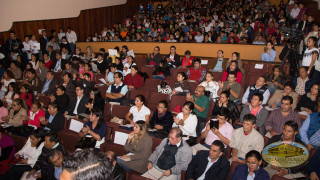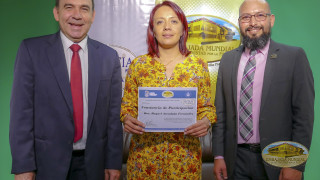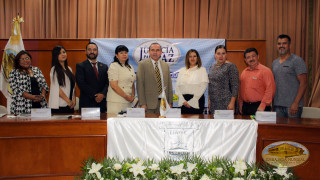Bolivia | 1st Judicial Forum for restorative justice for peace
Analysis of the Bolivian Criminal System and proposal for the typification of ethnocide
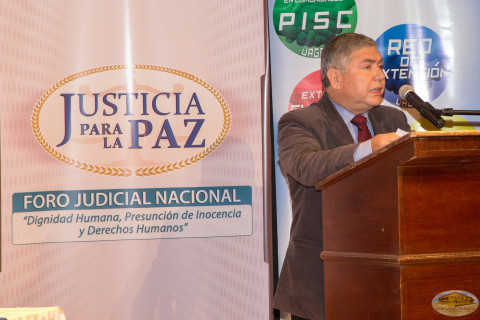 Through the Justice for Peace program, the Global Embassy of Activists for Peace (GEAP) in Bolivia held the 1st National Judicial Forum “Human Dignity, Presumption of Innocence and Human Rights in the Criminal System.”
Through the Justice for Peace program, the Global Embassy of Activists for Peace (GEAP) in Bolivia held the 1st National Judicial Forum “Human Dignity, Presumption of Innocence and Human Rights in the Criminal System.”
The activity was carried out in order to strengthen the administration of justice for peace and to promote the recognition and respect of the victims’ rights to truth, justice, reparation and the guarantee of non-repetition.
This academic meeting took place in coordination with the Gabriel René Moreno Autonomous University and with the support of the Bolivian Academy of Criminal, Economic and Business Law, in the Paraninfo Universitario of the city of Santa Cruz..
The event was attended by 550 people, including students and teachers from the Faculty of Legal, Social, Political and International Relations; members of the Departmental Court of Justice, Prosecutors, and members of the Permanent Assembly of Human Rights.
For the good of society
Oswaldo Ulloa Peña, vice chancellor of the university, opened the event and during his speech he said:
“I want to commit future similar acts in search of the contribution to this important topic, working in the same line, tirelessly, contributing and looking for our justice to improve, for the good of our society.”
For his part, Joel Lara Medrano, national coordinator of the GEAP, presented the “Justice for Peace” program, as a space for analysis and constructive criticism on issues of national and international interest, respect for dignity and human rights, as well as the protection of the planet Earth and the environment.
Experts analyze Criminal System Code
Daniel Valverde, professor of the university and director of the National Political Observatory, was the moderator of the table, which featured expert panelists, who gave a critical vision to the new Code of the Criminal System in Bolivia that is in the stage of a reform project.
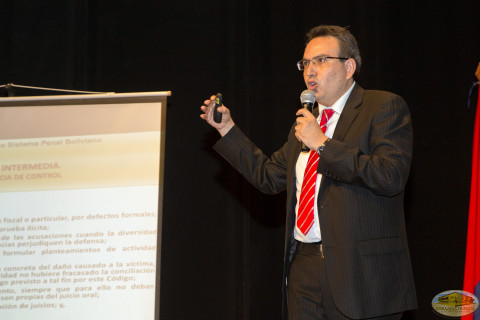 The first panelist was Ciro Añez Núñez, president of the Bolivian Academy of Criminal, Economic and Business Law, under the topic “Structure of the Criminal Process in the Bolivian Criminal System Project.”
The first panelist was Ciro Añez Núñez, president of the Bolivian Academy of Criminal, Economic and Business Law, under the topic “Structure of the Criminal Process in the Bolivian Criminal System Project.”
Añez Núñez, gave a general notion of what is currently legislated in the Bolivian Criminal System Code, and in turn compared it with the bill that is in the process of being studied.
He also indicated that certain agencies should be strengthened and to have adequate experts to give more flexibility to the processes, because, unfortunately, there are technical deficiencies that cause the retardation of justice.
Fabio Joffre Calasich, member of the Bolivian Academy of Criminal, Economic and Business Law, presented his presentation “Structural Contradictions in the Project of the Bolivian Criminal Code.”
Joffre Calasich, referred to the principle of inviolability of human dignity, referred to in Article 3 of the Bolivian Criminal System, he emphasized the need to humanize the penalties and restorative justice approach that gives this legislative project.
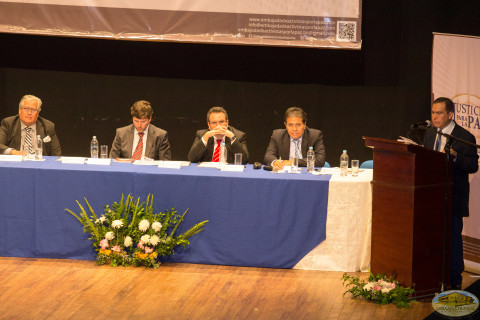 Proposal of the GEAP
Proposal of the GEAP
Finally, Harold Isevich Melgar, announced the international proposal of the GEAP, which deals with the updating of the convention for the prevention of the crime of genocide, and the need to include in the draft Code of the Bolivian Criminal System the crime of ethnocide, with the justification of the principle of conventionality.
Bolivia has ratified the conventions on the subject, as well as the agreement on the rights of indigenous peoples, which is found in the Political Constitution of the State..
The forum ended with a question and answer session.

